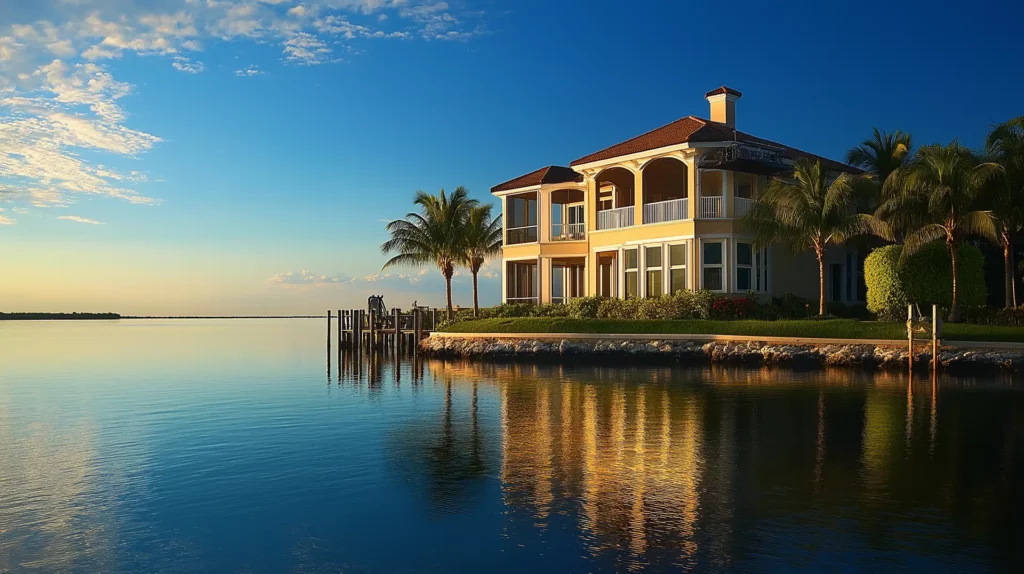Choosing the right life insurance can feel overwhelming. Should you go with term insurance or permanent insurance? Each has its own advantages, and the best choice depends on your needs. Whether you’re protecting your family, planning for retirement, or covering a mortgage, understanding term vs permanent insurance can help. Let’s break it all down so you can make a confident decision.
Understanding Life Insurance Basics
Life insurance is a way to make sure your loved ones are taken care of financially when you’re no longer around. If you’re trying to decide between term and permanent insurance, it’s essential to know how each works. This section breaks down both options and their key features.
What Is Term Life Insurance?
Term life insurance provides coverage for a set period, like 10, 20, or 30 years. It pays your beneficiaries a lump sum if you pass away during that time. If the term ends and you’re still alive, the policy typically expires unless you renew it.
Key features of term life insurance include:
- Affordability – Term insurance often costs less than permanent insurance, making it a popular choice for many families. For example, a $500,000 term policy for a healthy 35-year-old costs about $20–$30 a month.
- Simplicity – These policies are straightforward and focus purely on providing a death benefit.
- Temporary Protection – Term life is ideal when you want coverage during specific periods, like paying off a mortgage or raising kids.
What Is Permanent Life Insurance?
Permanent life insurance, as the name suggests, lasts your entire life as long as you pay the premiums. It also builds cash value over time, which you can borrow against or withdraw.
Key features of permanent life insurance include:
- Lifetime Coverage – Unlike term insurance, permanent policies don’t expire. This can be helpful if you’re concerned about long-term needs, such as funeral costs or estate planning.
- Cash Value Growth – A portion of your premium goes into a savings component. For instance, some whole life policies offer guaranteed growth, while others, like universal life, offer flexibility.
- Higher Costs – Permanent policies are pricier than term policies. A $500,000 permanent policy for the same 35-year-old might cost $250–$500 a month or more.
Understanding the basics of term vs permanent insurance is the first step in figuring out which option fits your needs. Both have their advantages, but the right choice depends on what you want to achieve.
Key Differences Between Term and Permanent Policies
Once you understand the basics, it helps to compare term and permanent policies side by side. Knowing the key differences will help you decide what makes sense for your goals and budget.
Coverage Period
The length of coverage is one of the most noticeable differences between term and permanent insurance.
- Term Life only provides protection for a specified time—10, 20, or 30 years. If the policy expires, so does the coverage.
- Permanent Life lasts a lifetime. This means your beneficiaries will receive a payout no matter when you pass away, as long as premiums are paid.
This is why term is great for temporary needs like covering a mortgage or raising kids. Permanent insurance works well for long-term needs, such as estate planning or leaving a legacy.
Cost Comparison
Price often plays a big role in the decision between the two.
- Term insurance is usually the least expensive. A 20-year, $500,000 term policy could cost around $30 a month for a healthy 40-year-old.
- Permanent insurance, however, costs more—sometimes five to ten times as much. A similar $500,000 whole life policy could run $300+ a month.
The higher cost of permanent life includes the added benefits of lifetime coverage and cash value growth.
Cash Value Component
Here’s where permanent life insurance really stands apart.
- Term policies don’t build cash value. They’re designed strictly for protection.
- Permanent policies include a savings or investment feature. Over time, this grows, and you can borrow from it or use it to pay premiums.
For instance, some policies build cash value at an average annual rate of 4% to 6%, offering a tax-advantaged way to save.
Flexibility
Each type of policy offers some flexibility, but in different ways.
- Term policies are sometimes renewable or convertible. For example, many term plans allow you to convert to a permanent policy without a medical exam before the term expires.
- Permanent policies offer more options overall. You can adjust premium payments, death benefits, and choose among different types like whole life or universal life.
These differences in term vs permanent insurance highlight what each policy does best. Knowing which features are most important to you can make your decision easier.
Factors to Consider When Choosing Between Term and Permanent Life Insurance
Choosing between term and permanent life insurance isn’t always easy. It depends on several personal factors, including your financial goals, age, health, and budget. Here’s how these considerations play a role.
Your Financial Goals
Think about what you want your life insurance to accomplish. Your goals can help point you in the right direction.
- Short-term needs: If you’re covering a mortgage, student loans, or making sure your kids’ college tuition is funded, term life might be your best bet. For instance, a 20-year term policy can align with the length of a home loan or child-rearing years.
- Long-term security: Permanent coverage is better for estate planning, leaving an inheritance, or ensuring lifelong financial protection for loved ones. It also works if you want to cover things like burial costs or ongoing expenses for a dependent.
Your Age and Health
Age and health are major factors when deciding between term and permanent plans.
- Younger individuals often benefit from the lower premiums of term insurance. A 30-year-old might pay just $20 a month for a 20-year term policy.
- Older individuals or those with health conditions might lean towards permanent insurance. This is especially true if they want coverage for final expenses or to leave behind a financial legacy.
Keep in mind, some term policies allow you to convert to permanent insurance later. This is helpful if your situation changes as you age.
Budget Considerations
How much you’re able to pay each month is another key factor.
- Term insurance is budget-friendly. For the price of a couple of coffee runs, you can get substantial coverage.
- Permanent insurance offers more features, but it comes at a higher cost. For example, a whole life policy can be five to ten times more expensive than a term policy of the same value.
If you have a tight budget now but want flexibility down the road, you can even start with term life and switch to permanent later.
Stage of Life
Your current stage of life can guide your choice.
- Single or newly married? Term life is often a practical option during these phases. It’s affordable and provides peace of mind while you’re building your financial foundation.
- Have a growing family or nearing retirement? Permanent insurance might make more sense. You may prioritize long-term needs, such as estate preservation or supporting dependents if anything happens to you.
These factors help bring clarity to the debate of term vs permanent insurance. By looking at your goals, age, budget, and life stage, you can better determine which type of coverage is right for you.
How Life Insurance Needs Vary in Fort Myers, Florida
Every community has unique considerations when it comes to life insurance, and Fort Myers is no exception. The local economy, demographics, and weather patterns can all influence the type of coverage that’s best for you.
Local Considerations in Fort Myers
Living in Fort Myers means you’re in a vibrant coastal community with its share of risks and opportunities. Here’s how this affects decisions around term vs permanent insurance:
- High retiree population: Many Fort Myers residents are retirees. For those in or nearing retirement, permanent life insurance can help with estate planning, funeral costs, or leaving an inheritance. A permanent policy ensures you’re covered for your lifetime.
- Young families moving in: Fort Myers has seen growth in young families drawn to the area’s schools and outdoor lifestyle. Term life insurance is often a smart choice for these households. It provides affordable, flexible protection for things like paying off a mortgage, childcare, or education costs.
- Hurricane risks: Living in Florida means planning for climate-related events, like hurricanes. While life insurance doesn’t replace a home or belongings, it can help your family recover financially if something happens to you during a disaster.
Examples Tailored to Fort Myers Residents
Here are two common scenarios where Fort Myers residents might choose either term or permanent life insurance:
- Young Family Scenario: Suppose you and your family just purchased a home in a Fort Myers neighborhood. A 20- or 30-year term policy could align with your mortgage and ensure your loved ones are financially secure if the unexpected happens. For example, a $250,000 term policy might cost less than $25 a month for a healthy individual.
- Retiree Scenario: If your kids are grown and you’re focusing on legacy planning, permanent insurance can make more sense. A permanent policy ensures funds are available to cover estate taxes or leave a gift to your grandchildren. Some whole life policies also build cash value you can access during retirement.
Considering Fort Myers-specific factors brings added clarity to the term vs permanent insurance debate. Whether you’re raising a young family or enjoying retirement, choosing the right coverage ensures your unique needs are met.
When Should You Pick a Term Policy?
Term life insurance is a practical option when your financial needs are temporary or tied to specific goals. It’s affordable, easy to understand, and designed to provide peace of mind during critical life stages. Here are some scenarios where term insurance makes the most sense.
Covering Major Financial Responsibilities
- Mortgage payments: If you’ve recently bought a home, a term policy can match the length of your loan. For example, a 30-year term policy ensures your family could pay off the house if anything happens to you.
- Raising children: Parents often choose a term policy to provide financial support until their kids are grown. A $500,000 policy could cover education costs and living expenses.
- Paying off other debts: If you have significant loans, like car payments or credit card debt, term insurance can help protect your loved ones from being burdened financially.
Prioritizing Budget-Friendly Coverage
If you’re on a budget, term life insurance offers a cost-effective way to get substantial coverage. A 20-year, $250,000 policy might cost as little as $15–$20 a month for a healthy, non-smoking 30-year-old. This allows you to secure financial protection without straining other priorities, like saving for retirement or emergencies.
Temporary Protection for Specific Goals
Term insurance is ideal if your main focus is protecting your family or assets during a defined period.
- Young professionals might use term insurance to temporarily supplement employer-provided life insurance while building savings and wealth.
- Business owners might use it to safeguard a key investment or ensure operations continue if they pass away unexpectedly.
When comparing term vs permanent insurance, term life stands out for its affordability and flexibility over set periods. It’s a great choice when your financial obligations aren’t lifelong but you want to leave your family secure.
When Should You Pick a Permanent Policy?
Permanent life insurance is a smart choice for long-term needs and wealth-building goals. Unlike term insurance, it provides coverage for your entire life and builds cash value. Here are some situations where choosing a permanent policy makes more sense.
Planning for Estate Needs
If you’re concerned about estate taxes or leaving an inheritance, permanent insurance is an ideal solution.
- Legacy building: A permanent policy ensures your family has financial support no matter when you pass away. This is especially valuable for leaving a lasting gift to children, grandchildren, or a favorite charity.
- Estate taxes: If your assets exceed $12.92 million (the 2023 federal estate tax exemption), permanent insurance can help cover the taxes, so your heirs don’t have to sell property or other valuables.
Covering Funeral and Final Expenses
Funeral costs in Florida average $7,000–$10,000. Permanent insurance can provide peace of mind knowing your family won’t have to dip into savings to pay for these expenses. Having a policy that lasts your entire life guarantees funds will be available when they’re needed.
Building a Cash Value Reserve
Permanent life insurance does more than provide a death benefit. A portion of your premiums goes toward a cash value account, which grows over time.
- Some policies guarantee growth at rates between 2% and 6%.
- You can use this cash value for major purchases, medical bills, or even retirement income.
For example, by the time someone pays into a whole life policy for 20 years, the cash value can be equivalent to several thousand dollars, depending on the policy terms.
Lifelong Financial Protection
If you have dependents who will need support for their entire lives, permanent insurance is the best choice. This includes caring for a child with disabilities or ensuring ongoing financial security for your spouse.
When weighing term vs permanent insurance, the enduring coverage and additional benefits of permanent life insurance are perfect for people focused on long-term goals, estate planning, and wealth growth. It may require a bigger investment, but it provides unmatched peace of mind.
Can You Combine Both Policies?
When choosing life insurance, you don’t have to settle for just one type. Many people find that combining term and permanent insurance offers the best of both worlds. This strategy can give you the coverage you need now while preparing for future needs.
Why Combine Policies?
Mixing term and permanent insurance is a practical way to balance coverage and cost. Here’s why some choose this approach:
- Affordable Coverage Now: Use a term policy to cover immediate, short-term needs, such as a mortgage or childcare expenses.
- Lifetime Protection for Legacy Goals: Add a smaller permanent policy to ensure long-term financial security, estate planning, or funeral costs.
- Flexibility as Life Changes: Term insurance can provide higher coverage during years you need it most, while the permanent policy builds cash value over time.
For example, a family might choose a $500,000 term policy for 20 years to protect their growing children, along with a $100,000 permanent policy to meet lifelong needs.
How to Structure a Combination
Here’s how you can combine term vs permanent insurance to meet your unique goals:
- Start with Term: If you’re early in your career or raising kids, choose a term policy that provides higher coverage without straining your budget.
- Add Permanent Later: As your income grows, you can add a permanent policy for estate planning or to leave a legacy. Some insurance companies also allow you to convert term policies into permanent coverage.
- Customize Based on Life Goals: For example, cover a 30-year mortgage with a term policy while using a smaller whole life policy to cover final expenses or build a cash reserve.
Who Benefits from Combining Policies?
This approach works well for many people, including:
- Young families: A large term policy ensures financial security during the years you’re raising children, while a smaller permanent policy grows in value.
- Business owners: Pairing a term policy to cover loans with permanent insurance to build cash value or leave a business legacy makes sense.
- Retirees in transition: If you’re converting a term policy into permanent coverage, this strategy ensures continuous protection without a lapse.
Blending term and permanent life insurance can give you more flexibility and comprehensive protection. When discussing options for term vs permanent insurance with your agent, consider how a combination could fit your financial plan.
How to Choose the Right Insurance Provider in Fort Myers
Picking the right insurance provider can feel overwhelming, but it doesn’t have to be. Working with someone who understands Fort Myers’ unique needs can make a huge difference. Here’s how to find the best partner for your life insurance needs, whether you’re exploring term vs permanent insurance.
Why Local Expertise Matters
A local insurance provider knows the special concerns of Fort Myers residents, such as hurricane risks or the area’s high retiree population. Here’s why that matters:
- Understanding of regional risks: Fort Myers is in a hurricane-prone zone. A knowledgeable provider can guide you in choosing policies that work alongside your homeowner’s insurance for greater peace of mind.
- Community experience: They’re familiar with the unique financial goals of local residents, from young families buying homes to retirees focused on preserving wealth.
- Accessibility: Local agents are easier to reach for in-person consultations. You can meet face-to-face to discuss specific needs and options.
For example, a Fort Myers agency might focus on how term policies can protect a new family’s home, or how permanent policies can address legacy planning concerns common among retirees in the area.
Frequently Asked Questions
What is the difference between term and permanent insurance?
Term insurance and permanent insurance are two distinct types of life insurance, each serving different financial needs and offering unique features. Term insurance provides coverage for a specific period, typically ranging from 10 to 30 years, and pays a death benefit only if the insured passes away during that term. It’s often referred to as “pure protection” because it focuses solely on providing a payout without any savings or investment component, making it simpler and more affordable. Common uses include covering mortgages, debts, or supporting young families for a set time. Premiums are usually fixed for the term but increase if you renew after the term ends, and the policy expires if no claim is made.
Permanent insurance, on the other hand, offers lifelong coverage as long as premiums are paid. It includes types like whole life, universal life, and variable life insurance, each with a death benefit and a cash value component that grows over time. The cash value accumulates on a tax-deferred basis and can be borrowed against, withdrawn, or used to pay premiums, offering both protection and a savings or investment vehicle. Permanent insurance is more complex and expensive due to its lifelong coverage and cash value feature, making it suitable for long-term financial planning, such as leaving a legacy, funding retirement, or covering final expenses indefinitely. The primary difference lies in duration (temporary vs. lifelong), cost (lower for term, higher for permanent), and additional features (no savings in term, cash value in permanent).
Which is cheaper, term or permanent insurance?
Term insurance is almost always cheaper than permanent insurance, often significantly so, due to its simpler structure and temporary nature. For a healthy 30-year-old, a 20-year term life policy with a $500,000 death benefit might cost $25–$50 per month, depending on factors like health, lifestyle, and location. These premiums remain fixed for the term but disappear once the term ends unless renewed (at a higher rate due to age). Term insurance lacks a cash value component, so insurers can offer lower rates since they’re only guaranteeing a payout if death occurs within the term.
Permanent insurance, such as whole life or universal life, typically costs $200–$500 or more per month for the same $500,000 death benefit, depending on the policy type, insurer, and individual factors. This higher cost reflects lifelong coverage and the inclusion of a cash value that grows over time, managed by the insurer or invested in the case of variable life policies. The premiums for permanent insurance are higher because they fund both the death benefit and the savings component, which can be accessed later. Over time, the cash value in permanent insurance may offset some costs, but initially, and for most policyholders, term insurance remains the more affordable option, making it ideal for those on a budget or needing coverage for a specific period.
Is term insurance better than permanent insurance?
Whether term insurance is better than permanent insurance depends entirely on an individual’s financial goals, budget, and life stage—there’s no universal “better” option. Term insurance is often considered better for those seeking affordable, straightforward protection for a specific period, such as parents covering child-rearing years, homeowners paying off a mortgage, or business owners protecting against debt. Its lower cost and simplicity make it attractive for people who want maximum coverage (e.g., $1 million) without the complexity or expense of permanent insurance. However, it provides no cash value or lifelong coverage, so if you outlive the term or need ongoing protection, you’re left without coverage unless you renew (at higher rates) or convert the policy.
Permanent insurance might be better for individuals seeking lifelong coverage, a savings or investment tool, or estate planning. It’s ideal for those with long-term financial goals, such as leaving an inheritance, funding a child’s education, or supplementing retirement income through cash value withdrawals or loans. It also ensures protection regardless of age or health changes, which is valuable for older adults or those with chronic conditions. However, its higher cost and complexity can be disadvantages for those on tight budgets or who don’t need lifelong coverage. Ultimately, term is better for short-term, cost-effective needs, while permanent suits long-term, multifaceted financial planning—consulting a financial advisor can help determine the best fit.
Can I convert term insurance to permanent insurance?
Yes, many term insurance policies offer a conversion option, allowing policyholders to switch to a permanent insurance policy (like whole life or universal life) without undergoing a new medical exam or providing additional health evidence. This feature is typically available during a specific “conversion period,” often within the first 5–10 years of the term policy or up to a certain age (e.g., 65). The ability to convert is valuable because it preserves coverage if your health declines, making you ineligible for new permanent policies at standard rates. However, converting comes with trade-offs: the premiums for the permanent policy will be significantly higher than the term policy’s premiums, reflecting the lifelong coverage and cash value component. The new premium is based on your age at conversion, not the policy’s start, so it’s more expensive than if you’d purchased permanent insurance initially. Not all term policies include this option, so it’s crucial to check your policy details or consult your insurer. Some policies also limit which permanent products you can convert to, and there may be additional fees or restrictions, so understanding the terms is key before deciding.
What are the benefits of permanent insurance over term insurance?
Permanent insurance offers several advantages over term insurance, making it appealing for those with long-term financial needs. First, it provides lifelong coverage as long as premiums are paid, ensuring a death benefit for beneficiaries regardless of age or health, unlike term insurance, which expires after its term. This lifelong protection is ideal for estate planning, covering final expenses, or leaving a legacy for heirs. Second, permanent insurance includes a cash value component that grows tax-deferred over time, typically earning interest or investment returns (depending on the policy type, like whole life, universal, or variable life). Policyholders can borrow against this cash value, withdraw it (subject to taxes and fees), or use it to pay premiums, providing a savings or investment tool not available with term insurance. Third, the cash value can offer financial flexibility, such as supplementing retirement income or funding major expenses. Fourth, permanent insurance can provide tax advantages, like tax-free death benefits and tax-deferred cash value growth, which term insurance lacks. Finally, some permanent policies offer customizable options, such as adjustable premiums or death benefits in universal life, adding flexibility. However, these benefits come at a higher cost and greater complexity, so they’re best for those who can afford the premiums and have long-term financial goals beyond temporary protection.
How long does term insurance last compared to permanent insurance?
Term insurance lasts for a fixed, predetermined period, typically ranging from 10 to 30 years, depending on the policy you choose. For example, a 20-year term policy provides coverage for exactly 20 years from the issue date, paying a death benefit if the insured dies during that time. If the insured outlives the term, the policy expires, and no death benefit is paid unless the policy is renewed (at higher rates due to age) or converted to permanent insurance. The duration is set at purchase, and there’s no coverage beyond that term unless action is taken. Premiums are usually fixed for the term but can increase upon renewal.
Permanent insurance, conversely, is designed to last your entire lifetime, provided premiums are paid consistently. It doesn’t have an expiration date like term insurance; as long as you maintain the policy (and in some cases, the cash value is sufficient to cover costs), coverage remains in effect until death. This lifelong protection is a hallmark of policies like whole life, universal life, and variable life, which combine a death benefit with a cash value that grows over time. However, if premiums aren’t paid or the policy lapses (e.g., due to insufficient cash value in universal life), coverage can end. The key difference is that term insurance is temporary and finite, while permanent insurance aims for lifelong security, aligning with different financial planning needs.
Questions to Ask an Insurance Agent
When you’re shopping for life insurance, don’t hesitate to ask potential providers these important questions:
- “How much coverage do I need?” Experienced agents can help calculate your ideal coverage based on your income, age, debts, and family size.
- “What type of policy suits me best?” A good insurer will explain the pros and cons of term vs permanent insurance as they relate to your goals.
- “Can I upgrade from term to permanent later?” Ask whether their term policies include a convertibility option, which allows you to switch to permanent without a new medical exam.
- “What’s included in the policy?” Make sure you understand premium costs, riders, and additional benefits like accidental death coverage.
- “Do you have local references?” A local provider should have a trusted reputation among other Fort Myers residents.
Supporting a Community-Oriented Provider
Beyond expertise, working with a community-minded business means supporting the Fort Myers economy. Look for an agency involved in local events or with a strong history of serving residents.
Choosing a local, experienced provider ensures you get personalized advice tailored to Fort Myers’ unique needs. From hurricane readiness to long-term financial planning, their expertise can make a big difference as you consider options for term vs permanent insurance.
Deciding between term and permanent life insurance comes down to your goals, budget, and stage of life. Term policies are affordable and great for temporary needs like mortgages or childcare. Permanent policies provide lifetime coverage, build cash value, and help with estate planning or final expenses. You can even combine both to get the best of both worlds. Choosing the right coverage also means picking a knowledgeable insurance provider who understands the Fort Myers community and your unique needs.
We’re here to help you choose the right policy for your family. Contact our Fort Myers agency today to get personalized advice or request a quote.







